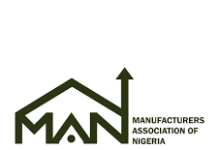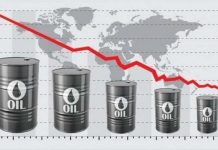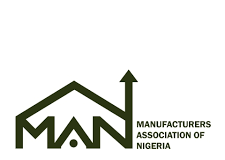The World Bank is scheduled to approve new loan facilities for Nigeria, totaling $632 million, today (Monday), amid growing concerns regarding the nation’s escalating debt burden. These loans are earmarked to bolster critical sectors, including nutrition enhancement and quality basic education.
Information procured from the World Bank’s official website on Sunday revealed that the two loan facilities anticipated for approval today encompass $80 million for the Accelerating Nutrition Results in Nigeria 2.0 project and $552 million for the HOPE for Quality Basic Education for All program.
Both projects are presently in the negotiation phase and are expected to receive final approval later today. These new loan facilities are part of a broader strategic initiative by the World Bank to support Nigeria’s developmental objectives, with a focus on healthcare, education, and community resilience.
The loans are intended to augment the government’s initiatives to improve nutritional outcomes and expand access to quality education for Nigerian children.
Concurrently, the World Bank had already sanctioned a $500 million loan to Nigeria last Friday, to support the nation’s Community Action for Resilience and Economic Stimulus Program.
This approval, which occurred on March 28, 2025, represented a significant stride towards addressing Nigeria’s economic challenges through expanded access to livelihood support, food security services, and grants for economically disadvantaged households and enterprises.
The program, officially titled the NIGERIA: Community Action (for) Resilience and Economic Stimulus Program, is designed to provide essential support to households adversely affected by economic downturns and to strengthen community resilience.
The initiative targets vulnerable populations by offering grants to households and small businesses to alleviate the economic hardships they are experiencing.
The loan approval is expected to substantially enhance Nigeria’s endeavors to stimulate the economy through grassroots support, particularly amid ongoing challenges such as inflation and elevated living costs. The stimulus package will focus on improving food security and creating economic opportunities for communities most severely impacted by recent economic fluctuations.
This approval transpired amidst a delay in the disbursement of funds for a prior loan facility aimed at economically disadvantaged and vulnerable Nigerians.
Further investigations revealed that the World Bank disbursed approximately $315 million to Nigeria out of the $800 million approved for the National Social Safety-Net Program Scale Up.
For over a year, Nigeria has not received any additional funds from the World Bank for this loan project, which was approved in December 2021. The delay in fund disbursement is likely attributable to instances of fraud detected within the program.
President Bola Tinubu initiated a social safety net program that would distribute N25,000 to 15 million households over a three-month period, in observance of the 2023 International Day for the Eradication of Poverty. The Federal Ministry of Humanitarian Affairs and Poverty Alleviation was tasked with executing the $800 million World Bank loan project.
However, the Federal Government was compelled to suspend the cash transfer program for further investigation and restructuring, following allegations of misappropriation within the program.
Former humanitarian minister, Betta Edu, was previously suspended due to the misappropriation of N585 million earmarked for palliative distribution.
Additionally, Edu’s predecessor, Sadiya Umar-Farouq, was under investigation by the EFCC. The former minister is being investigated for alleged money laundering of N37.1 billion during her tenure as a minister.
The World Bank also imposed sanctions on individuals and businesses found to have committed fraud under the programs.
Previously, the Federal Government was poised to secure six new loan facilities, totaling $2.23 billion, from the World Bank in 2025, as the international financial institution continues to support the country’s economic and structural reforms.
Data from the World Bank’s official website indicates that this would bring Nigeria’s total approved loans to $9.25 billion over three years, reflecting a growing reliance on multilateral funding to support critical sectors of the economy, including infrastructure, healthcare, education, and economic resilience.
An analysis of Nigeria’s loan approvals from the World Bank since 2023, under the administration of President Bola Tinubu, reveals a significant increase in funding commitments.
In 2023, the World Bank approved loan facilities amounting to $2.7 billion, which primarily targeted projects in renewable energy, women’s empowerment, education, and the power sector.
The funding approvals recorded in 2024 significantly surpassed those of the preceding year, with a total of $4.32 billion allocated to various projects. This increase was largely attributed to Nigeria’s growing need for financial assistance to stabilize the economy amid escalating fiscal pressures and rising public debt.
For 2025, Nigeria is seeking to secure six new loan facilities from the World Bank, with a combined value of $2.23 billion. The planned loans encompass key sectors, such as digital infrastructure, healthcare, education, nutrition, and community resilience.
Under the administration of President Bola Tinubu, the World Bank has approved approximately 11 distinct loan projects for Nigeria.
In less than two years, the Federal Government has secured loans worth $7.45 billion from the World Bank, raising concerns about the growing debt burden. According to data from the Debt Management Office, the World Bank’s share of Nigeria’s external debt amounts to $17.32 billion, as of the third quarter of 2024.
The bulk of this debt is owed to the International Development Association, which accounts for $16.84 billion, representing 39.14 percent of Nigeria’s total external debt. The International Bank for Reconstruction and Development, another arm of the World Bank, is owed $485.08 million, or 1.13 percent.
While the proposed World Bank loans could provide much-needed fiscal relief, concerns persist regarding the country’s escalating debt burden. Recent data from the Central Bank of Nigeria indicates that the country has expended $5.47 billion on external debt servicing in the past 14 months, highlighting the strain on its foreign reserves.
The Minister of Finance and Coordinating Minister of the Economy, Wale Edun, previously stated that, rather than accumulating further debt, the government is prioritizing alternative funding sources, such as revenue generation, concessional loans, and strategic investments.
“We are currently in an optimization phase, characterized by a reduced emphasis on borrowing, particularly from commercial markets, which is considerably high. We are focusing more on optimizing assets and attracting private sector investment, both domestic and foreign,” Edun said.
However, the consistent growth in the World Bank’s financial commitments to Nigeria, from $2.7 billion in 2023 to $4.32 billion in 2024, and the anticipated $2.23 billion in 2025, underscores the country’s increasing dependence on concessional financing to drive structural reforms and public sector investments.
As Nigeria continues to navigate its debt challenges, experts emphasize the importance of efficient fund utilization and transparent project execution to ensure that these loans yield meaningful economic and social benefits.














